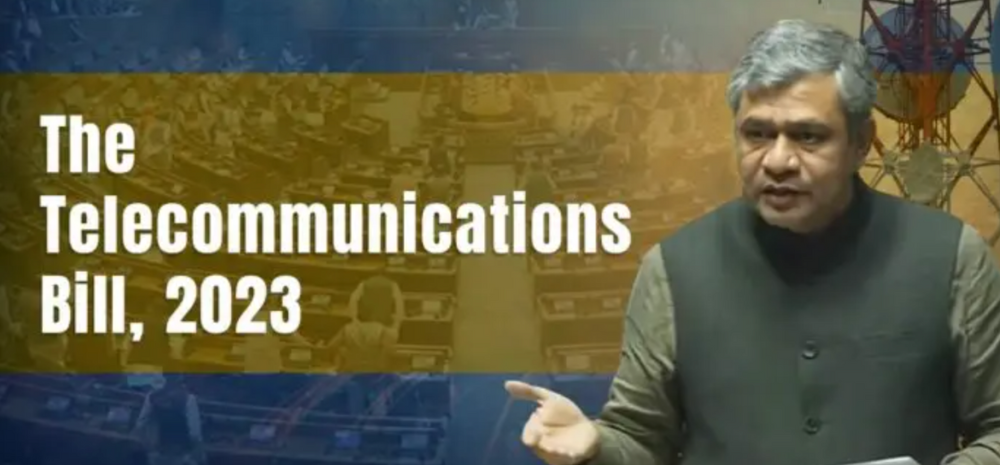Union Electronics & Information Technology Minister Ashwini Vaishnaw unveiled the Telecommunications Bill, 2023 in Lok Sabha, marking a significant move to amend and consolidate laws governing the development, expansion, and operation of telecommunication services and networks.

The proposed legislation aims to replace antiquated telecom laws, including the Indian Telegraph Act 1885, Indian Wireless Telegraphy Act 1933, and Telegraph Wires Act 1950. This bill has been passed by the Lok Sabha.
2. Financial Bill Status and Parliamentary Scrutiny
Crucially, the Telecommunications Bill, 2023 has been designated as a financial bill, sparing it from the need for approval by Rajya Sabha. However, concerns have been raised by some Members of Parliament, such as Ritesh Pandey of the Bahujan Samaj Party (BSP), who argue that this classification shields the bill from Rajya Sabha scrutiny. The debate unfolds on whether the bill should maintain its financial bill status or be reclassified as an ordinary bill.
3. Broadening the Scope of Telecommunication
The bill introduces a comprehensive definition of telecommunication, encompassing the transmission, emission, or reception of messages through various mediums. This definition, inclusive of messages like text, images, sounds, and data streams, is poised to extend the regulatory reach to cover a broad spectrum of internet-based services.
4. National Security Emphasis
The Telecommunications Bill, 2023 introduces sweeping changes with a key focus on national security. In times of public emergency or disaster management, the government is granted the authority to temporarily take possession of telecommunication services or networks. Furthermore, mechanisms are outlined to prioritize the routing of messages during emergencies.
5. Journalistic Safeguards
Journalistic communications are conditionally exempt from interception, specifically those intended for publication in India by accredited correspondents to the Central or State Government. However, provisions allow for interception or detention in cases of public emergency or concerns for public safety.
6. Trusted Sources for Procurement
In a bid to enhance security, the bill mandates the procurement of telecommunication equipment and services solely from trusted sources. This provision is viewed in light of the geopolitical tensions between India and China in 2020, emphasizing the need for secure and reliable telecom infrastructure.
7. Biometric-Based Identification for Telecom Services
A noteworthy provision in the Telecommunications Bill, 2023 involves the use of biometric-based identification for providing telecom services to users. This move aligns with the government’s efforts, including the deployment of Artificial Intelligence and Facial Recognition-powered solutions, to combat the misuse of phone numbers through fake or forged documents.
For further details on the Telecommunications Bill, 2023, you can access the full document.













